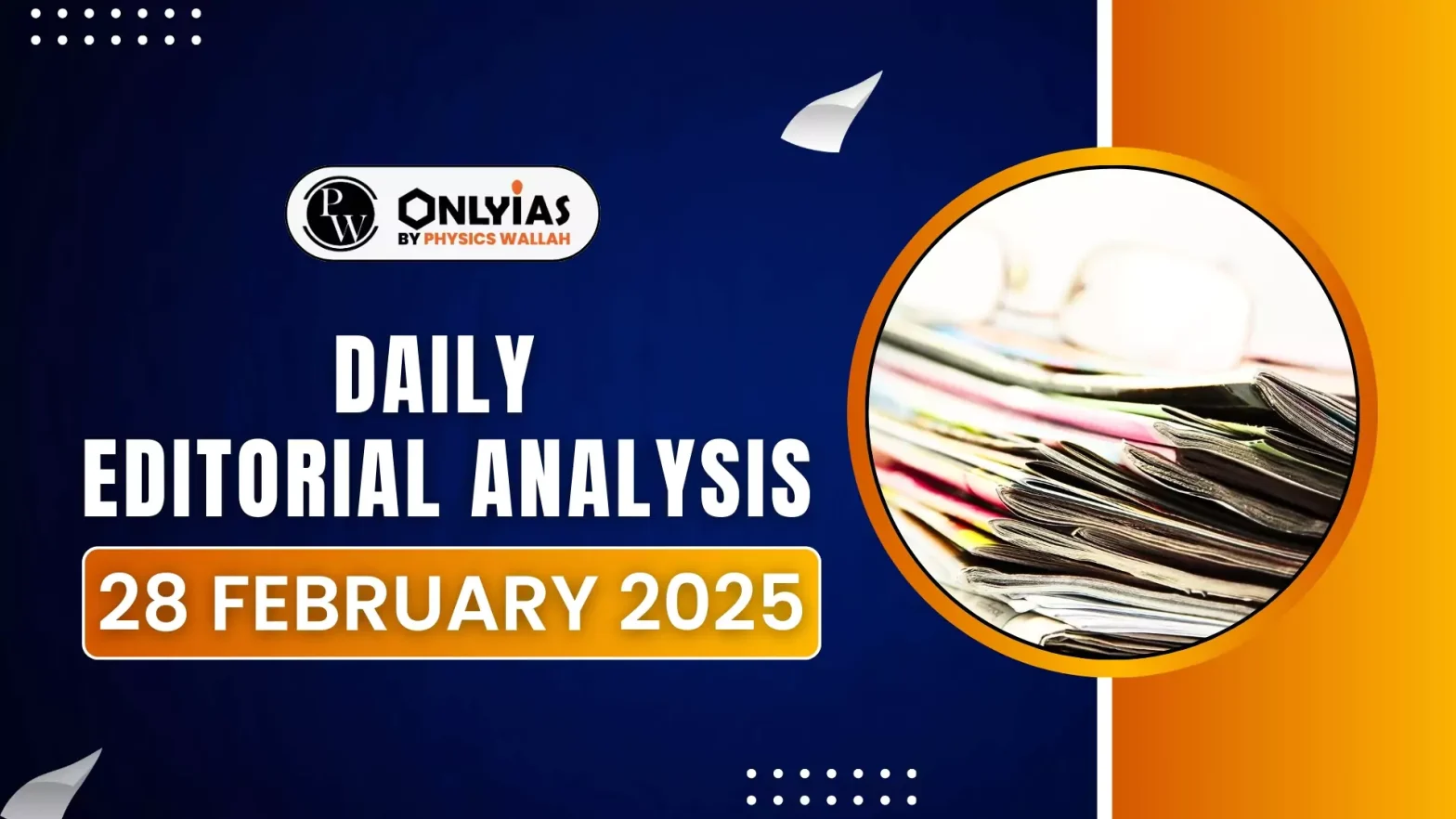![]() 28 Feb 2025
28 Feb 2025

The appointment process of Election Commissioners has been revised through a new law in 2023
Given the high constitutional significance of the Election Commission, the Supreme Court must carefully examine the validity of this law.
| Mains Practice Question |
|---|
<div class="new-fform">
</div>